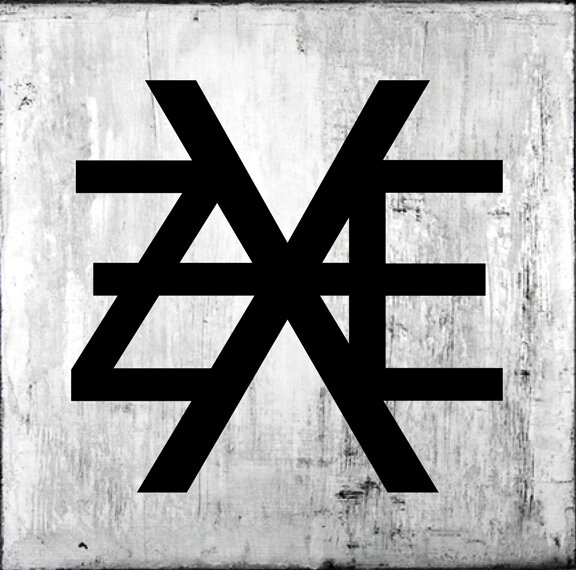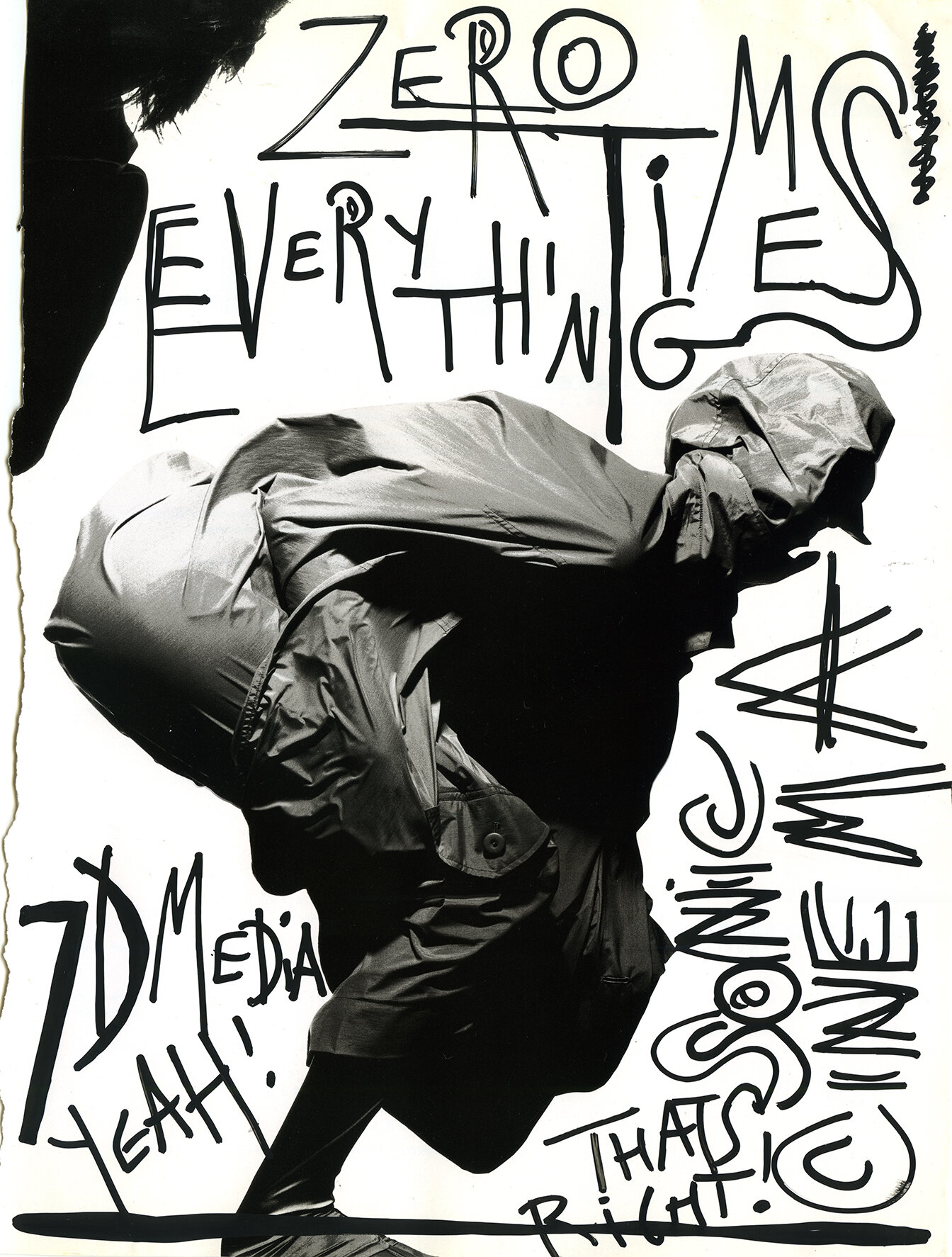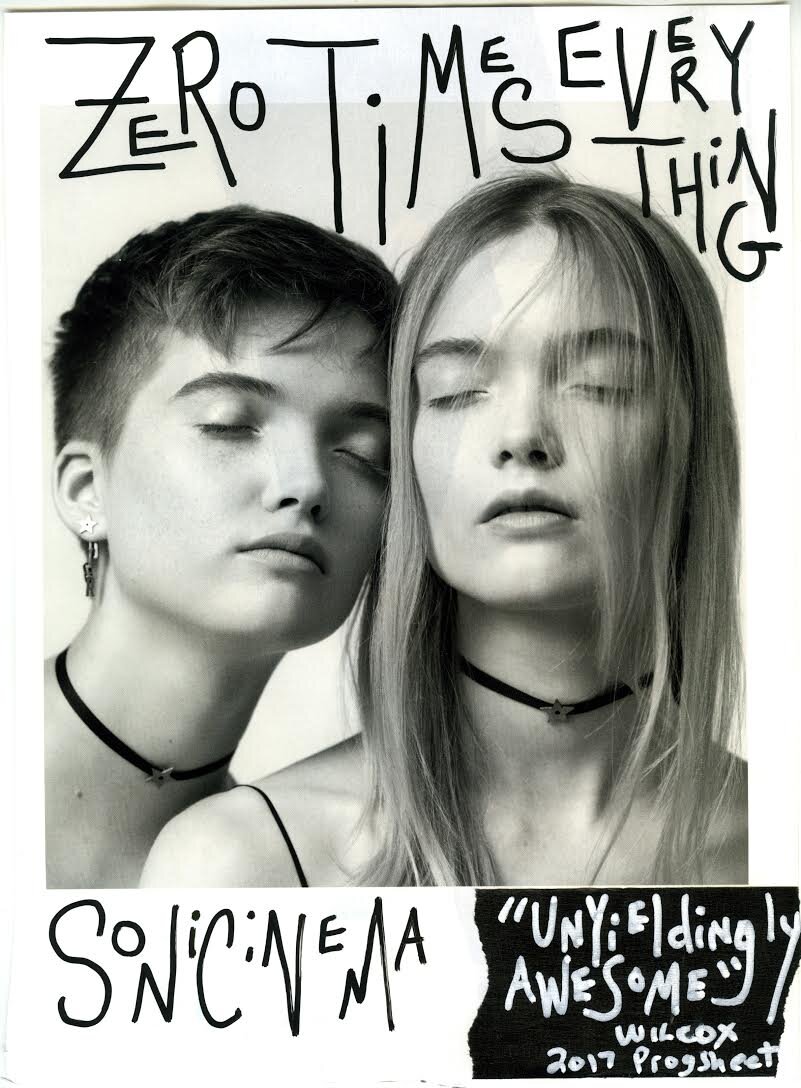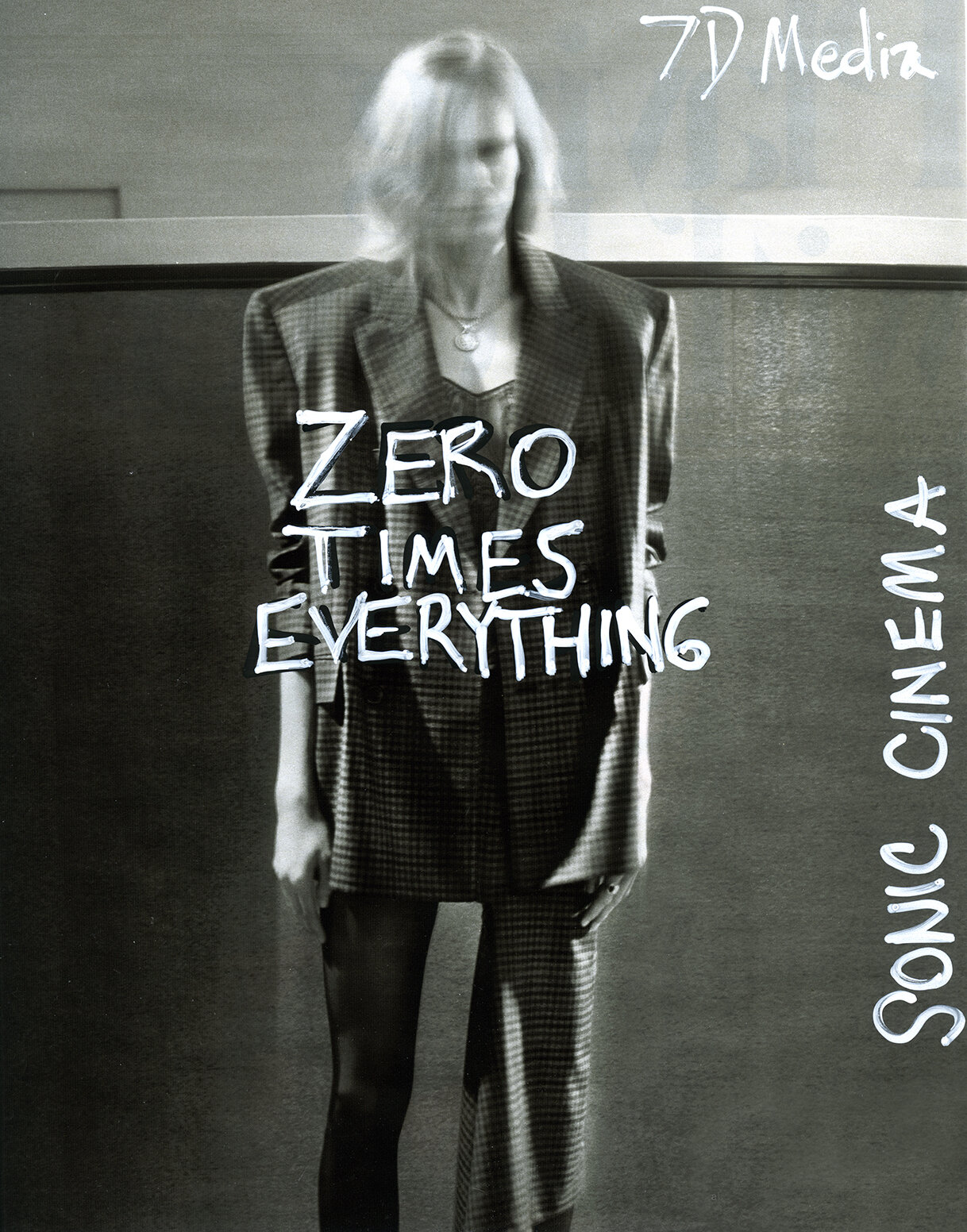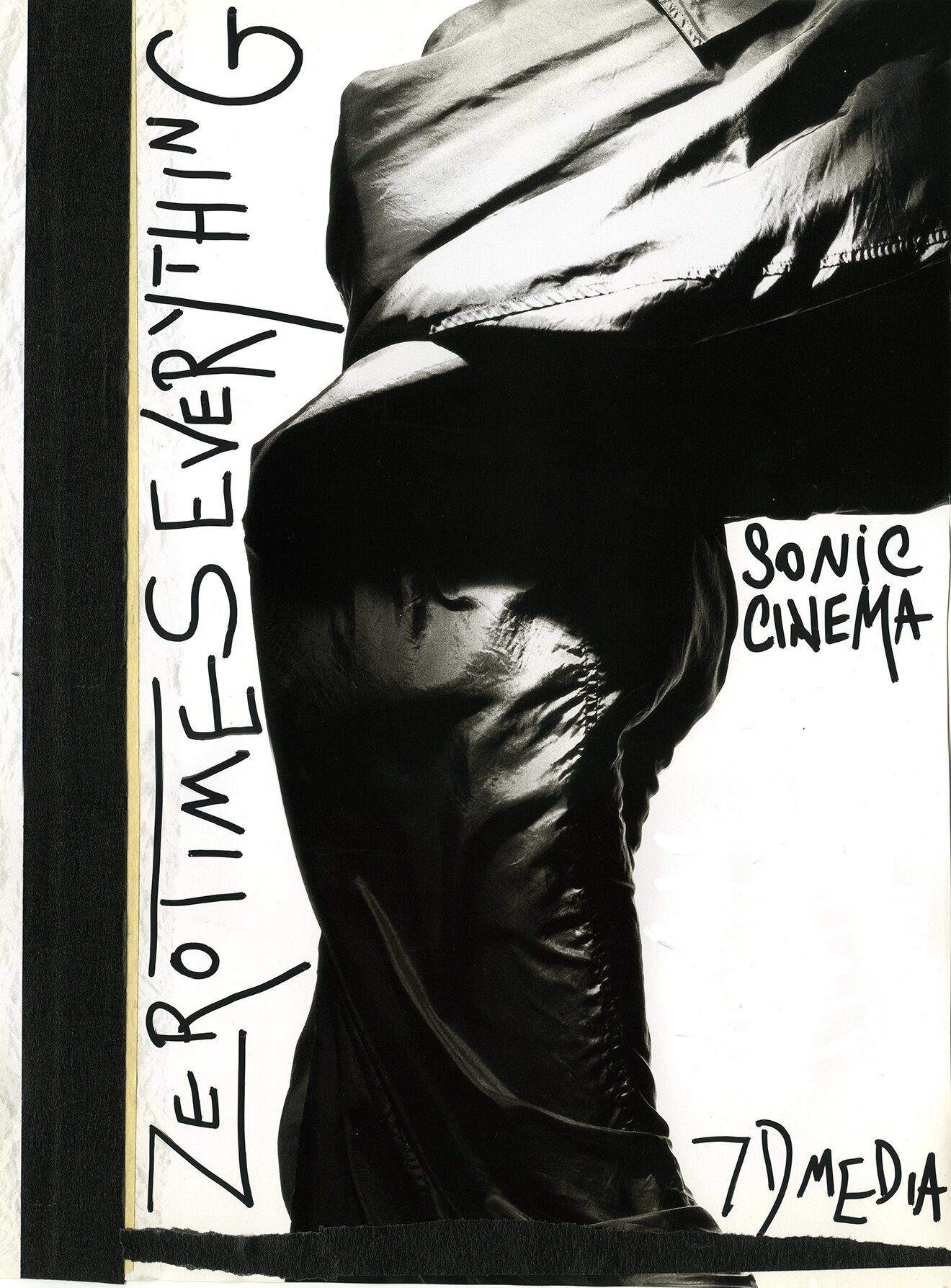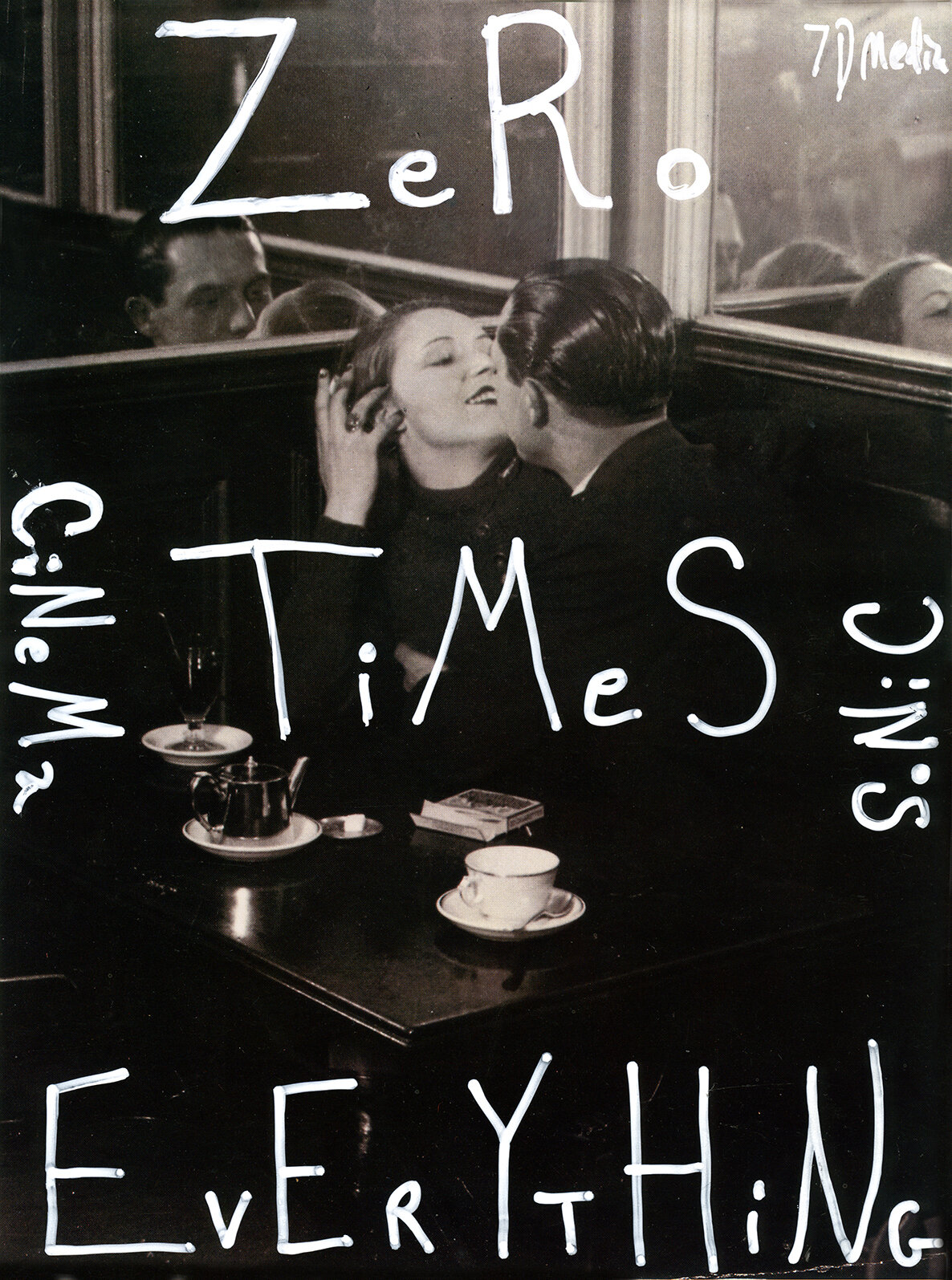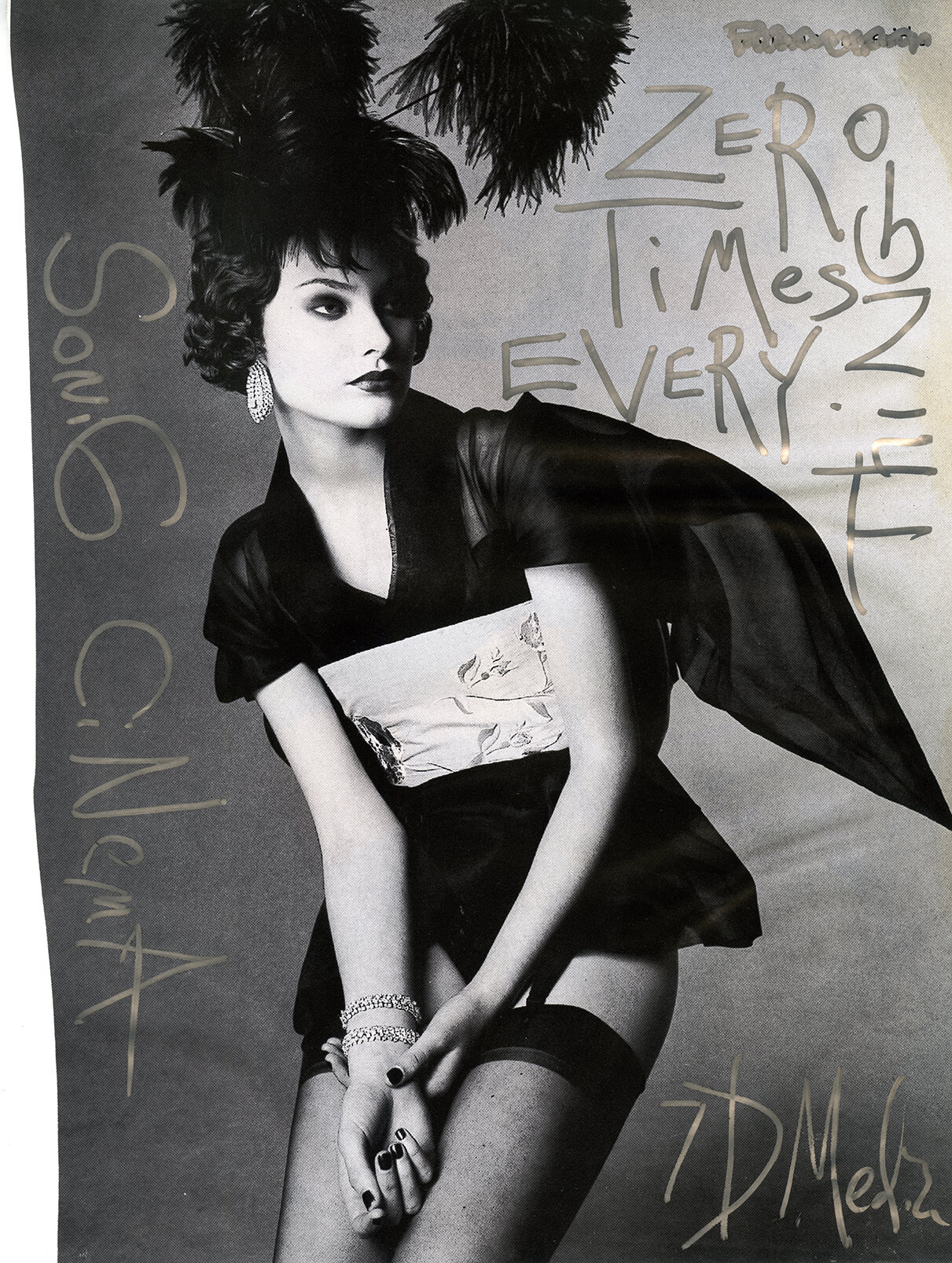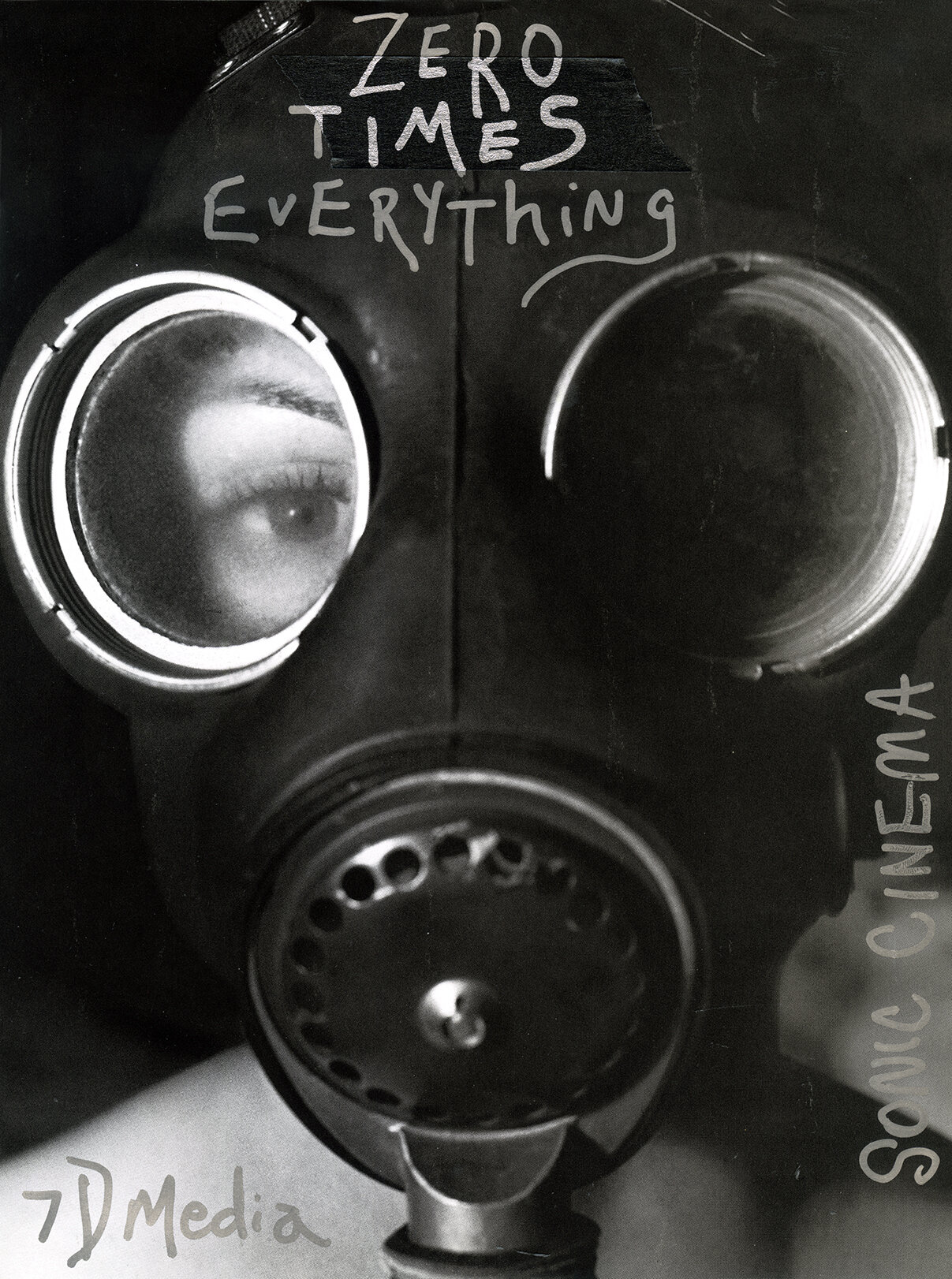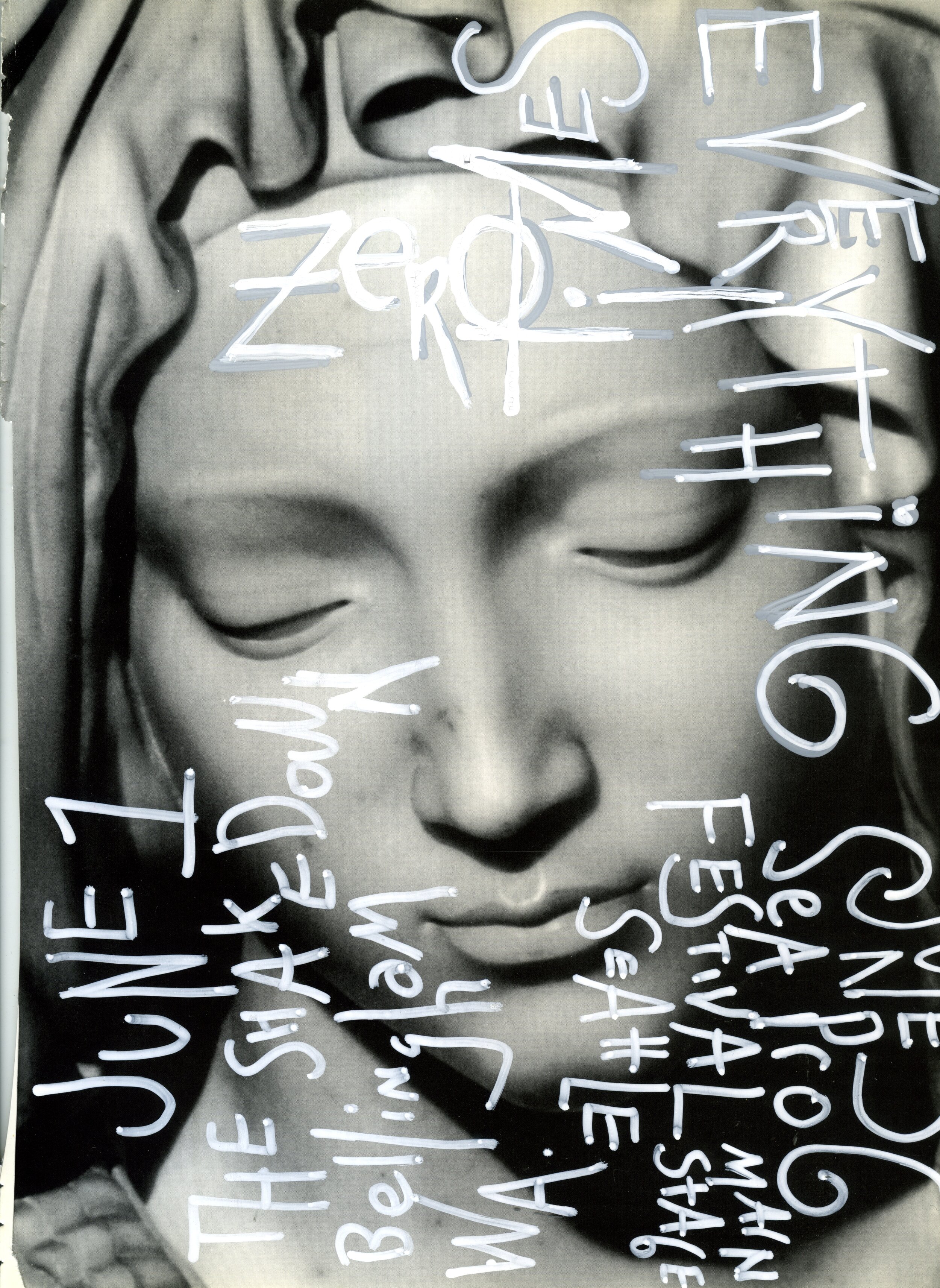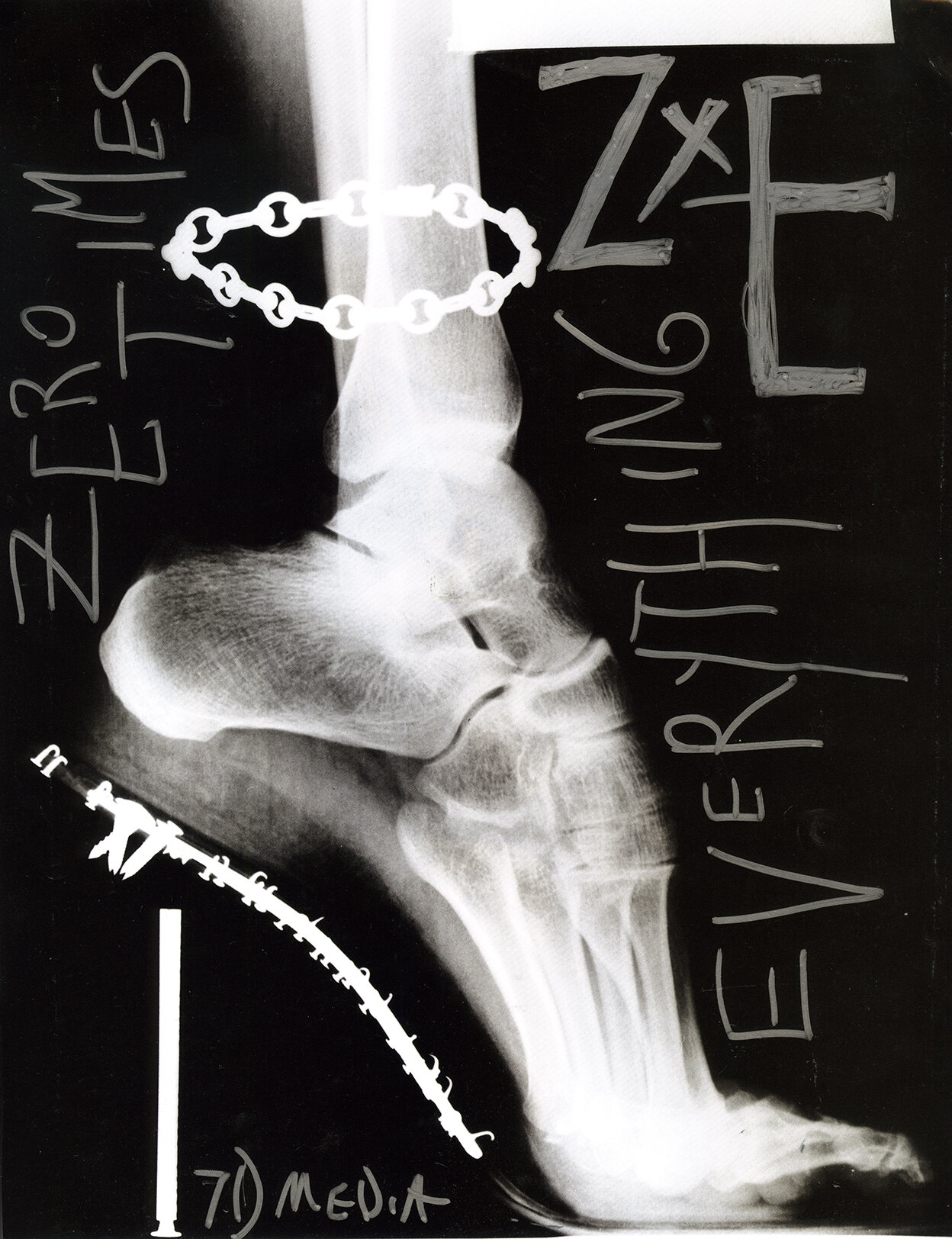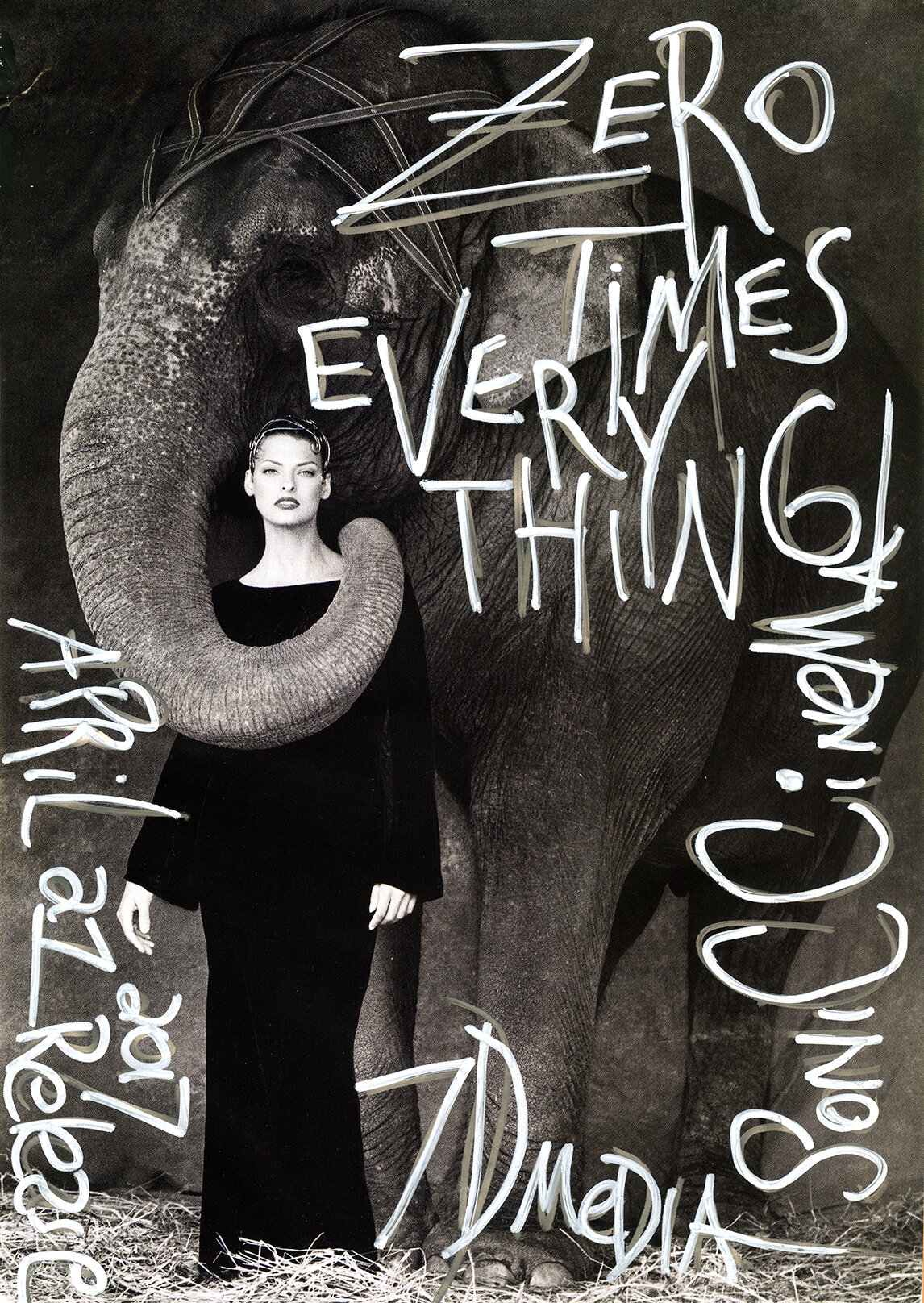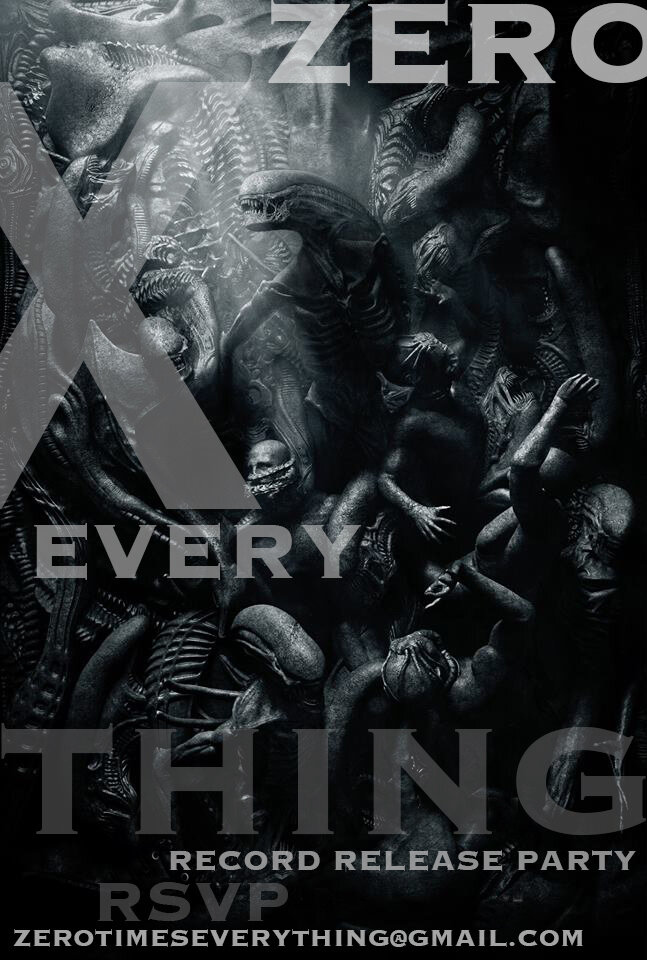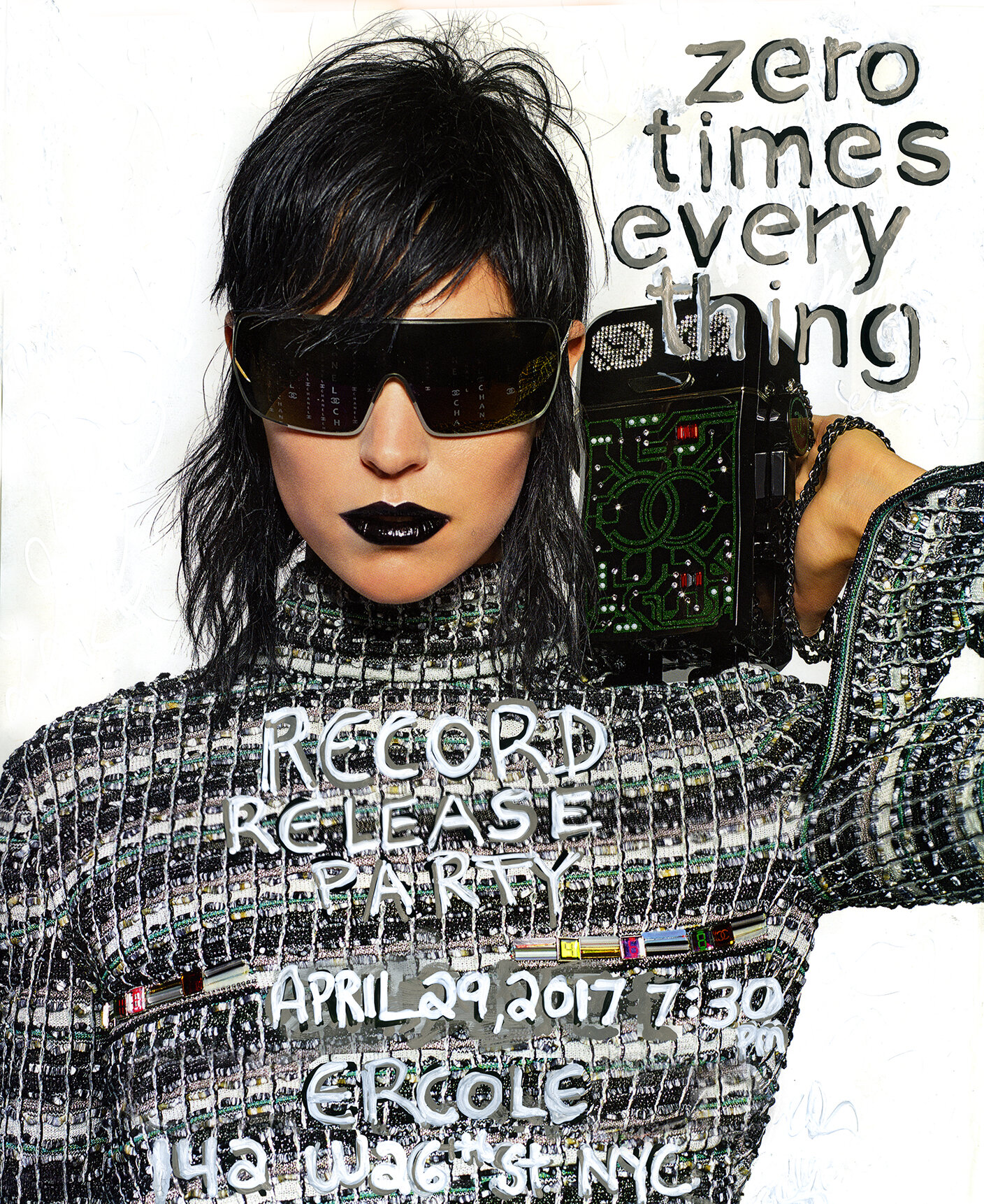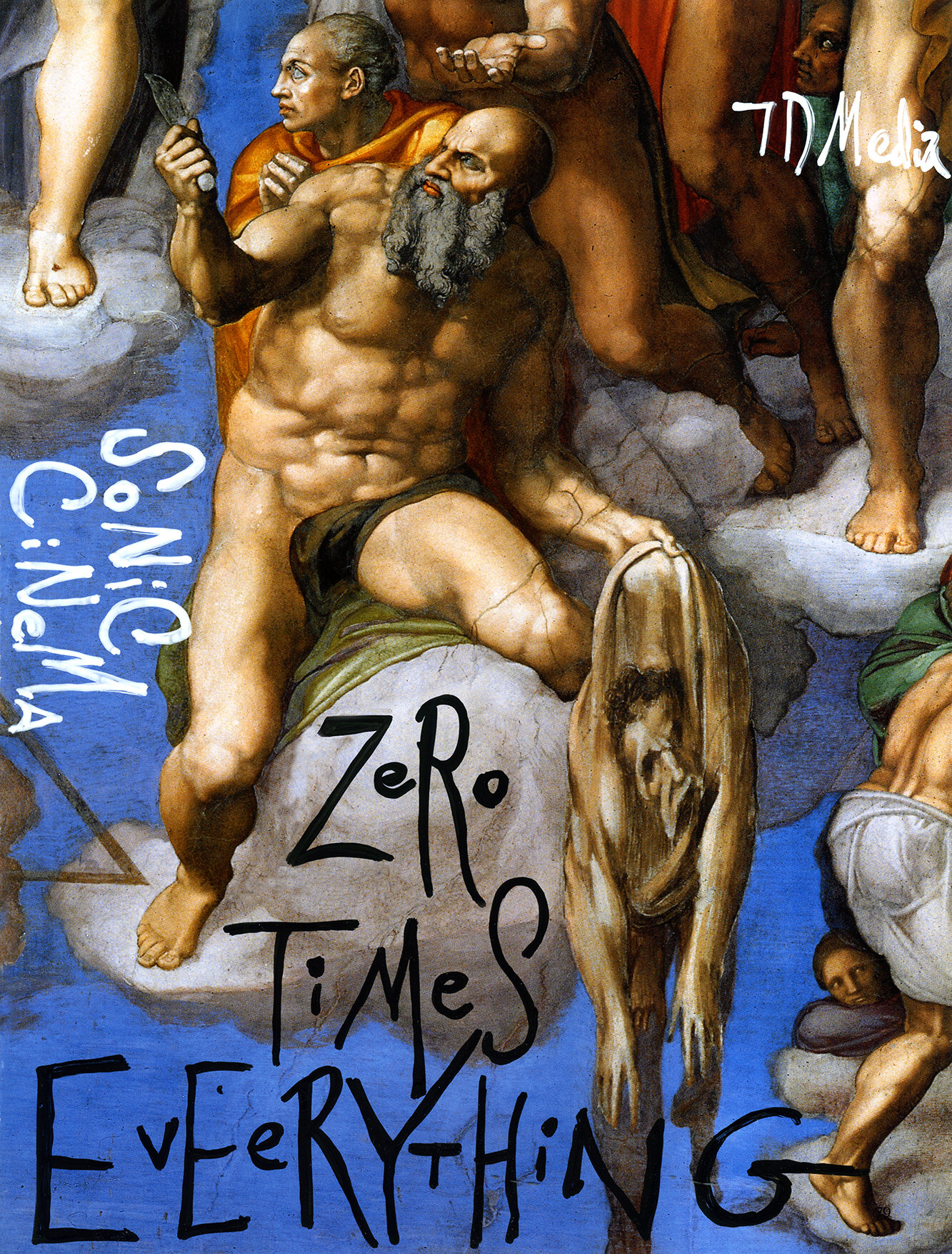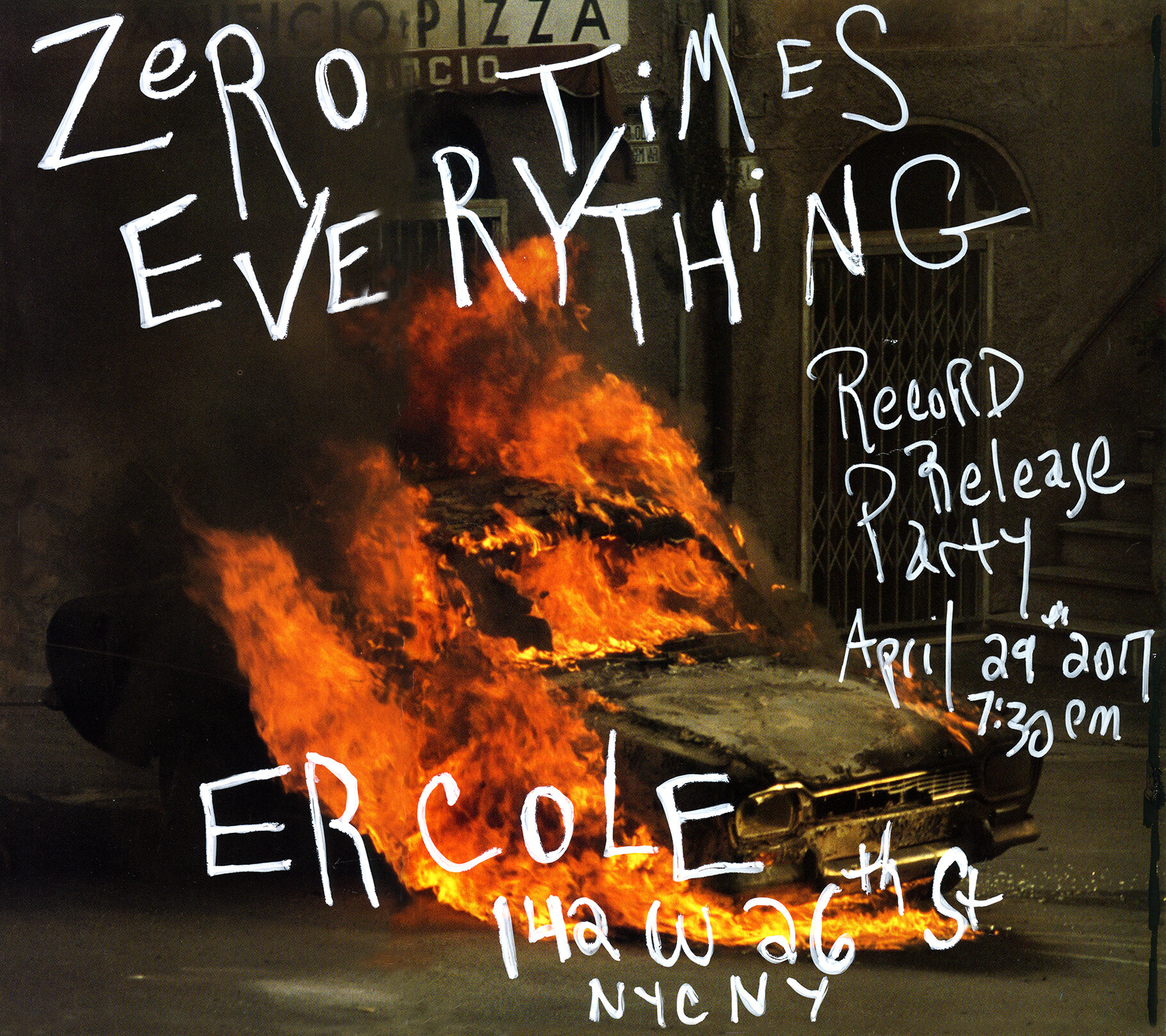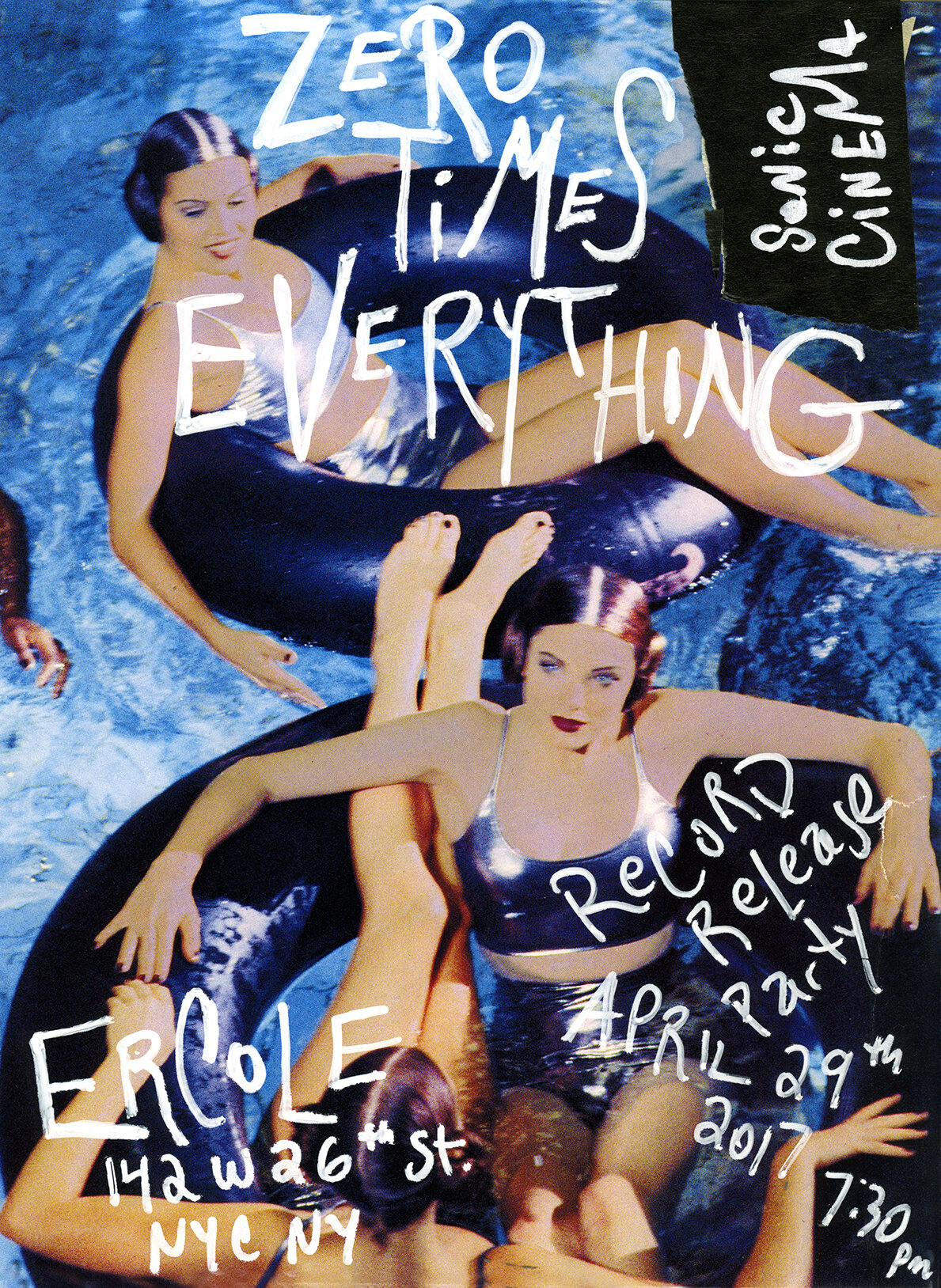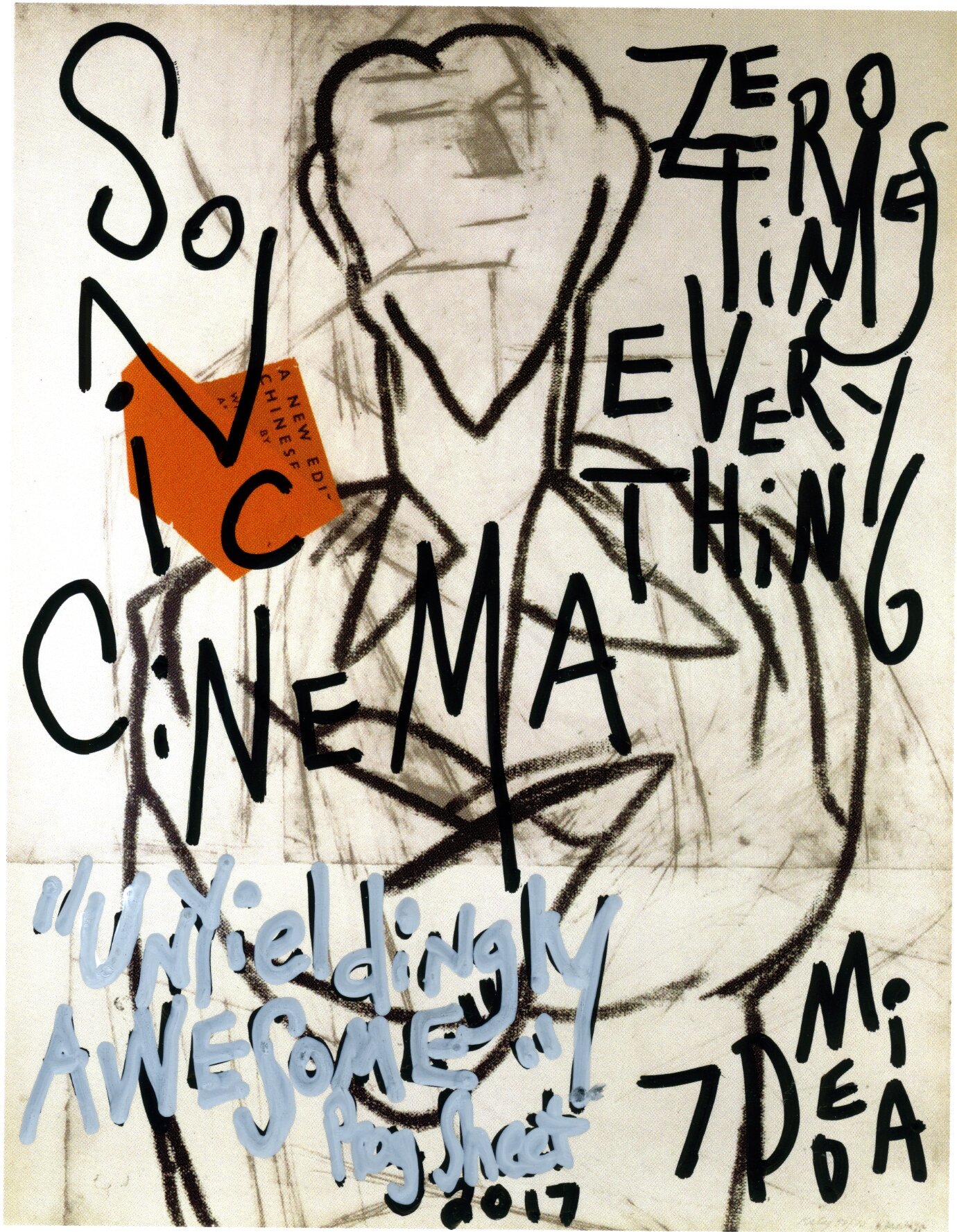PRESS
MUSIC STREET JOURNAL
Zero Times Everything
Interviewed by G. W. Hill
Interview with Zero Times Everything from 2017
MSJ: Can you catch the readers up on the history of your involvement in music – both individually and as a band?
Tony Geballe: I was fortunate to grow up with seven older siblings, whose musical interests ranged from classical to ethnomusicology to rock, so I heard everything growing up. To me it all just seemed like music, nothing strange or revolutionary. My involvement with ZxE grew from my friendships with Richard and Pietro, our mutual experience in Guitar Craft, and each of us playing and making “art” in various different formats around New York City for the last 25 years (for me – they’ve been in New York City longer). Richard approached us about providing music for a film he was completing, and our cinematically sonic adventures grew from there.
Richard Sylvarnes: At twelve years old I was hired by an insurance firm to design a pamphlet for them, my first paying job. I was paid $25. On the day I was paid I accompanied my mother to Sam Ash. She was a piano player and had to buy some particular music. While I was waiting for her I strolled around the shop. Lining one aisle were acoustic guitars, and I started rubbing my hands across the strings. I became transfixed. Before going there I had no intention of buying a guitar and had no real awareness of the instrument. It was magic. With guitar in hand I consciously decided to find out what music really was. Armed with a tape recorder I played the radio and taped three songs at random. One was Led Zep, the other was The Who, and the final one was “RocknRoll” by The Velvet Underground. It was the VU song that I particularly responded to and actually wore out the tape from playing it so much. I didn’t even know who it was because I only recorded the songs and not the DJ’s banter. I relentlessly pursued the guitar all through high school and spent a summer studying at Berklee College of Music, but my final course of study was photography and film making. From there most of the music I made was for the films I was making. I did form a band with Katy Lewis called "Sylvarluxe," and we have three albums out with a pending fourth soon. We weren’t a live performing band - only a creature of the studio. Then a number of years ago I approached Tony and Pietro to perform a live soundtrack to a film I made called “The Last Words of Dutch Schultz." But looking back now I see that getting together for that project was really just a catalyst to where we are now.
Pietro Russino: I grew up surrounded by music, the juke box in the family bar played early R&B records, brought in by the US guys stationed at the NATO base nearby. The concession bar (that my father had in the town theater) was a free ticket to any live band or concert that was playing there. I remember being a musician before I had a real guitar. I used to build stuff up that somehow vibrated , like demolishing a rowing boat and making with nails and fishing line, three guitars out of it, or wrapping the rubber band around the school table and sliding a pencil under it while plucking the "Crimson and Clover" bass line with my ear pressed on the table.
MSJ: If you weren't involved in music what do you think you'd be doing?
Tony Geballe: I was supposed to become a physicist, so probably something in the sciences. But if I were to leave music now, either some sort of radical left activism or taking a vow of silence and becoming an ascetic would probably be where I’d put most of my energy.
Richard Sylvarnes: Considering all the volume and noise Tony makes with his electric guitar a vow of silence for him would be most welcome. I make experimental films and do photography already.
Pietro Russino: It’s hard to say. I have been doing so many other things already, but no matter what I do, music is always there.
MSJ: How did the name of the group originate?
Tony Geballe: My recollection is that Richard proposed it as a phrase that his daughter had thought of, but neither he nor she has that memory. So, I guess Richard thought it up. Maybe he was trying to escape responsibility, if we didn’t like it!
Richard Sylvarnes: I was tossing ideas around in my head. I like the idea that math, at a certain point, becomes a rich combination of art and philosophy. Especially the notion of infinity which is and is not a number. I like the idea of not being able to take away from infinity. What is infinity minus one? It’s still infinity. Infinity Minus One was a name choice. I also am fond of the idea of zero which also is and is not a number. If you multiply any number by zero the answer is zero. This is cool stuff. Another possible name was Zero Times Infinity. But I wanted to ground the idea of infinity; to make it more material and concrete so I changed the word infinity to everything. If you multiply zero times everything you’re not left with zero. You are left with nothing.
MSJ: Who would you see as your musical influences?
Tony Geballe: Well, really, everything I’ve ever heard. In ZxE nothing is off the table: heavy, ambient, dark, pretty, free, mechanical, “ethnic,” classical…we bring it all and we’re open to all of our ideas.
Richard Sylvarnes: Tony is totally correct here. I love music. I don’t care what genre or name you give it. If it’s music, I’m open to it. As heavy as we can sound we’ve also played, dare I say, country music but with a ZxE twist, of course.
Pietro Russino: Yes, Mongolian throat singing, Sardinian Canto a Tenores and a fiddle in Dead Man tuning.
MSJ: What's ahead for you?
Tony Geballe: Our CD release party is in late April at the Ercole Gallery in New York City. We hope to play some shows behind the new CD, and are already plotting the next one…
MSJ: I know many artists hate to have their music pigeonholed or labeled, but how would you describe your music?
Tony Geballe:Avant-garde post-industrial pre-cambrian pan-ethnic serial noise proto-punk neocortex music that lives at the intersection of “My Life in the Bush of Ghosts” and Autechre, mixing glitchcore, ambient, and progressive rock.
MSJ: Are there musicians with whom you would like to play with in the future?
Tony Geballe: We are exploring a galaxy of artists to work with in New York City and hope to collaborate live with many: the extraordinary Italian pianist Matteo Arevalos, avant-garde film and sound artists MV Carbon and Bruce McClure, and several more.
Richard Sylvarnes: We’ve also recorded and played live with Rachael Guma who is a foley artist and turntablist and been in contact with Zach Layton and Victoria Keddie. We’re very involved with the experimental sound and film community in New York and it really is a community of like minded souls. I also have a relationship with Klaus Killisch and Enkidu rankX (yes that’s how you spell it) - two artists from Berlin that I’m eager to trade sound files with. I believe that playing with artists outside of the band really helps stretch our boundaries and incorporating their talents into the ZxE universe makes us more vital. No matter who we play with it always winds up sounding like ZxE but with a little added spice.
MSJ: Do you think that illegal downloading or streaming of music is a help or hindrance to the careers of musicians?
Tony Geballe: It can be both, but I believe people need to consider carefully that the artists who make the music they like have to pay rent, buy food, and all the things in life that require money. It’s easy to take advantage of creative artists because of their imperative to create no matter what, and because whether due to ego, a desire to be recognized, or the vain hope that someone will pay them for it they’ll put it out there, and now it’s so easy to copy. There also needs to be more education about how musicians are actually paid, where the money goes, and how to get more of it to the artists. We’re grateful that there are many who understand, and want to support artists.
MSJ: In a related question, how do you feel about fans recording shows and trading them or posting them online?
Tony Geballe: I think it really depends on the vision and desires of the musicians. If they’re okay with it, then fine. If, however, they are doing something live which could be disrupted either physically or metaphysically by the act of recording, then please respect that and look for what it is they’re really after!
MSJ: If you were a superhero, what music person would be your arch nemesis and why?
Tony Geballe: No real music person would be my nemesis, however some industry figures might, and certainly some fake entertainers and purveyors of sonic pabulum catering to the lowest impulses and base desires of the public would be.
MSJ: If you were to put together your ultimate band (a band you'd like to hear or catch live), who would be in it and why?
Richard Sylvarnes: Bach on keyboards, Laurie Spiegel on synths, Dawn Upshaw on vocals with Enrico Caruso backing vocals, Jimi Hendrix on guitar, Charles Haden on bass, Miles Davis on trumpet, Tony Williams on drums, Mel Collins on sax, backed by the Icelandic String Quartet. I believe the names speak for themselves but I think the sonic adventurousness of this particular group could be thrilling with a mix of precision and barely controlled chaos. And Dawn Upshaw could sound like the angel that floats above the maelstrom.
MSJ: If you were in charge of assembling a music festival and wanted it to be the ultimate one from your point of view who would be playing?
Richard Sylvarnes: I’ve curated a number of benefits for the Film Maker’s Coop in New York City which is the oldest distributor of avant garde films in the world. In those benefits we’ve had Lee Renaldo, JG Thirlwell, Philip Glass, Laurie Anderson, John Zorn, among others. I always thought that was a pretty cool lineup.
MSJ: What was the last CD you bought and/or what have you been listening to lately?
Tony Geballe: I listen to a lot of music from different cultures and classical music, but I also loved Scott Walker’s last two CDs and the new Ralph Towner.
Richard Sylvarnes: Phantom Studies by Marcel Dettman and Ben Klock, Turns by Sam Barker and Andreas Baumecker, and Arc Angel by Planetary Assault Systems. All on the Ostgut Ton Label. Also Brian Eno’s Reflection. Oh, and Mayhem’s Esoteric Warfare. Norwegian black metal flows through my veins.
Pietro Russino: I listen to music in my car, mostly radio, whatever grabs my ear - late obsession is Appalachian fiddle music, Mountain Song by Dirk Powell.
MSJ: Have you read any good books lately?
Tony Geballe: Yes – The Sympathizer by Viet Thanh Nguyen, In the Shadow of the Banyan by Vaddey Ratner.
Richard Sylvarnes: I’m currently reading J.G. Ballard’s The Atrocity Exhibition. I also have a copy of Sven Marquardt’s Die Nacht Ist Leben. He’s the bouncer at Berghain in Berlin. It’s in German so I’m reading it very, very slowly.
Pietro Russino: I have a bunch waiting for me on the night table, but the truth is , that I’d rather be playing music or watching a good movie.
MSJ: What about the last concert you attended for your enjoyment?
Tony Geballe: I saw Ralph Towner last week in New York City - a great master of our time.
Richard Sylvarnes: Clock DVA at Rough Trade.
Pietro Russino: Lisa Maree Dowling, Candlelight concert at Art OMI, Ghent , New York
MSJ: Do you remember your first concert?
Tony Geballe: Yes! Neil Young in Seattle. I was 15 years old and went with my sister Emily. Although before that, my parents took me to some classical concerts, but I don’t remember those.
Richard Sylvarnes: Queen at Avery Fisher Hall. It was after their third album. They were the first rock band to play there, and they gave out programs to everyone. We were in the balcony and my friend ripped out a page and made an airplane out of it. He threw it and it glided all the way down to the stage. Within minutes airplanes were flying everywhere.
Pietro Russino: The Who, Who’s Next tour in Rome. It changed my perception of live music forever.
MSJ: Have you come across any new gear recently that you love?
Tony Geballe: I am constantly on the lookout for interesting plugins and software instruments, too many to name…
Richard Sylvarnes: Always looking. I’d love to get into modular synthesis and Euro racks. I recently got the Korg Minilogue and there’s nothing mini about it - except it’s size.
Pietro Russino: I am very happy with my current set up, Logic with an Apogee GIO pedal board, but I wish I could spend few days with a tech wiz. I just love to push pedals.
MSJ: Do you have a musical “guilty pleasure?”
Tony Geballe: A few - Neil Diamond comes to mind.
Richard Sylvarnes: Sometimes my hand reaches for Johnny Mathis and some early Barbara Streisand. I’ve also been know to spin Donna Summer from time to time, especially the long version of “Love To Love You Baby," on repeat.
Pietro Russino: The Voice Best Moments on Youtube - can’t stop crying
MSJ: What has been your biggest Spinal Tap moment?
Tony Geballe: Oh, brother, you make me remember those? So many…The most literally Spinal Tap moment was in England in 1986, with Robert Fripp and the League of Crafty Guitarists playing at the Virgin Megastore in London. Our green room was in another building, down an alley and across the street; getting from the green room to the stage was just like the scene in Spinal Tap – except there were 13 of us with guitars strapped on.
Richard Sylvarnes: I was showing one of my films digitally in London, and the image was entirely blue. The minute I saw the problem I ran up to the projection booth and scattered all over the floor like spaghetti was a 35mm film; luckily not mine. The projectionist must have just dropped an entire film canister. I told him the film is blue, and he hands me the controls and says, “then fix it." I said, “I don’t know how to use this thing and besides, you’re the projectionist,” and he just points to the floor and says, “right now I have bigger problems, and anyways your film is a ghost movie. The blue shade is a quality that will enhance that genre.”
MSJ: If you could sit down to dinner with any three people, living or dead, for food and conversation, with whom would you be dining?
Richard Sylvarnes: Aristotle because I have some questions. Oscar Wilde because I think he’d be an entertaining guest. And, finally, Joan of Arc. Every party needs some fire.
MSJ: What would be on the menu?
Richard Sylvarnes: Wild Boar on a spit, a bowl of berries, and Mead.
MSJ: Are there any closing thoughts you would like to get out there?
Richard Sylvarnes: ZxE has grown organically. When we first got together I had no idea what would happen. I’m sure everyone else would agree on that. It was an experiment of sorts. Put three guys in a room together and see what happens. The music really could have gone in many different directions, but this is the direction it took, which, (for me) is a nice surprise.
Enraging the Painter Next Door — The Zero Times Everything Interview
Among the many groups that have originated with Robert Fripp’s Guitar Craft seminars, Zero Times Everything stands as an outlier. While there are guitars involved, the music is largely electronic, with programmed percussion parts, heavily processed sounds, and sampled voices. About as far from the California Guitar Trio (for example) as you can get, at least on the surface.
by Jon Davis, Published 2017-05-19
I was fortunate to connect to the three band members by email, and they were kind enough to answer my questions. The responses were minimally edited for clarity and punctuation.
RS: Richard Sylvarnes — Kaoss Pads, loops, synths, rhythms, guitars, vocals
PR: Pietro Russino — guitars, loops, violin
TG: Tony Geballe — guitars, synths, loops
What are your earliest musical memories? How did your conception of music develop?
Tony GeballeTG: Because I have seven older siblings and parents who loved classical music and the popular music of their era, I grew up hearing everything, and loved all of it. My eldest sister was an early student of ethnomusicology, so I even heard music from many different cultures, then unknown to most Westerners. So nothing has ever sounded strange to me, other than certain Japanese classical forms and one processional from Indonesia I once heard!
RS: I had piano lessons starting around six. "Volga Boatmen" springs to mind. But it wasn't until my early teens when music took hold of me. I "magically" bought a guitar when I was twelve. I say "magically" because I never had any notion of buying or playing a guitar until I accompanied my mother to Sam Ash, she played the piano, and I became entranced by an aisle full of hanging guitars. I bought one with my first earned money. From there I devoted myself to playing the guitar and studying music.
PR: My uncle is a drummer and my father had a bar concession in the town theater, so I was exposed to music early on, my earliest memories are around four years old. Italian pop, R&B, and Sardinian folk music was what I heard. I think when I was about seven, my family had a restaurant / dance club in a little beach town, and the band with the season engagement used to leave their instruments there, so I learned how to turn on the gear, of course the guitar was my choice.
What kind of formal schooling do you have in music?
TG: Some piano and guitar lessons as a kid. In college I was fortunate to meet an amazing sound engineer named Glenn White at the University of Washington, who advised me through getting a degree in “Musical Engineering,” which I used to take all the music classes I wanted without having to fulfill someone else’s idea of a music education. I was able to study with Indian musicians, learn from African and Indonesian musicians, and of course the Turkish musicians who utterly changed my life — I ended up spending a year in Turkey for that. I attended two summer workshops with Ralph Towner and the members of Oregon, and became Ralph’s house-sitter for his first year in Seattle. Just being around him was the best education. And of course the whole Guitar Craft experience, while not a “formal music education,” was more than formative for me.
Richard SylvarnesRS: I studied the piano as a young kid and guitar privately for many years. Along with those lessons I was taught music theory. In my late teens I studied at Berklee College of Music and in my early twenties studied third world music and the music and ideas of Harry Partch.
PR: I am initially self taught, later in my twenties I study some classical guitar, music theory with Woody Mann at the New School, then Guitar Craft and Irish Fiddle
Tell me about your musical activities before Zero Times Everything.
TG: After playing on a less than semi-pro level in Seattle for a few years, I was blessed to play a lot of concerts around the world with the League of Crafty Guitarists. After that I moved to NYC, where I developed my solo 12-string guitar music, and became connected to the brilliant theater director Karin Coonrod, for whom I’ve composed music, designed sound, and performed in NYC and other places in the US and in Italy. I played in a few bands around the city. Then, I was the least interesting member of the Trey Gunn Band, which included two Warr Guitars and a phenomenal drummer / percussionist whose setup required most of our 22 road cases to transport. And I became a member of Braindance, the progressive darkwave band featuring the extraordinary music and playing of Vora Vor, and the vocal stylings of Sebastian Elliott. Braindance also features the drumming of Kenny Grohowski — if you haven’t yet heard of him, you will.
RS: Most of my musical activities involved making music for my films, therefore a sense of mood and atmosphere was very important. In the early 2000s I formed the group Sylvarluxe with the Welsh singer Katy Lewis. We released three records and, hopefully, our fourth in the near future. I’m also in a band called the Underworld Oscillator Corporation with Rachel and Gabriel Guma and our most recent performance was incorporating a live soundtrack to the silent Lon Chaney version of The Phantom of the Opera at the Morbid Anatomy Museum.
Pietro RussinoPR: I played with cover bands in Italy in my teens, when I lived in London I got interested in acoustic fingerstyle, playing in some pubs but mostly busking in the tube. Since I’ve moved to New York I had the opportunity to play in different styles of music and group settings, the first was Wild and Wonderful, an art trio with the greatly missed singer / art gallerist Pat Hearn. Then I’ve played with I Giullari di Piazza, an Italian renaissance folk group led by singer percussionist Alessandra Belloni. After that I started attending Guitar Craft seminars in West Virginia, where I met Tony and Richard, I share my blessing with Tony for the privilege of touring and recording with The League of Crafty Guitarists. Following that was the Prog / World Fusion quartet The Point, with Tony Geballe in the role of producer. The solo looping period started right after that, developing in what I call Hypnofolk, also the title of my solo CD. I am also part of the Diaz Ensemble, a World Fusion group led by fellow Crafty Jon Diaz.
How did Zero Times Everything come together?
TG: I’ve known Richard and Pietro since the mid-80s. Richard asked Pietro and me to help him develop live music to accompany his film The Last Words of Dutch Schultz. After that, we began playing to some of his other films, and the music acquired a life of its own, as they say.
Was the visual element part of the idea for the band from the beginning?
TG: Yes, it was the basis of forming the band.
RS: It certainly was our raison d'être but we have organically grown from our beginnings. As far as the visual component is concerned, some of the films came after the recording process. "Kapital" comes to mind, which is a piece I brought pretty much fully formed to rehearsal for further improvisation and then made the film afterwards. But then there's "Vox Populi" where the film was completed and the music written for the pre-existing visuals. We have also performed with Bradley Eros and his group of multi-projectionists called Optipus.
Tell me about some of the technological elements of ZXE’s music.
TG: I have moved from using the Roland VG-99 with ZXE, to the VG-88, and now I run through various effects and simulators on an iPad straight into the mixing board, with a tiny Bluetooth pedalboard.
RS:I feel there is a renaissance in analog synth technology. I have the Korg Minilogue which is a combination of modern technology and analog synth technology. A wonderful instrument. I also have a new Korg MS-20 which simulates the classic analog version. And when I feel the music needs a little chaos I pull out my Kaoss Pad.
PR: I am very happy of the changes from a Line6 Pod Pro system through a Mesa Boogie, to a Mac with Logic sounds and USB Apogee GIO pedalboard straight into the PA.
It seems like in the past, relying on technology (especially computers) tended to limit spontaneity, or at least have that reputation. Do you find that to be true anymore?
TG: I think that is related to the individual artist. There may be a learning curve, but the creative spirit will find a way to use any tool, if the body which coats that spirit allows it to!
How does ZXE music come about? Are pieces composed by one member or another, or the result of improvisation?
RS: We incorporate many methods to making music, from strict composition to total improvisation and a combination thereof. In a recent interview we were asked how is it possible that you can write a song like "Accident." A fair question since the song has qualities that are amorphous and atmospheric and then there are moments that appear thoroughly composed. For this particular piece I made a slow moving cold, dark electronic drum track and the femme fatale's voice. This is one of our methods of composition — to bring the barest of elements and then improvise over those elements. This particular improvisation lasted around 45 minutes. We were so entranced by what we were doing that the painter whose studio is adjacent to ours was banging on the metal door that separates our spaces for the entirety of the improv. We never heard him. He was livid and remains so. I took the separate tracks and edited them to the final 11 minute piece. Then Tony did further manipulations to the material with "Accident" being the result. This is an example of a mix of compositional elements and improvisation.
How often does ZXE play live? What are some notable shows you’ve done?
TG: We play live as often as possible! Two shows come to mind: the main presentation of Dutch Schultz at the Anthology Film Archives in 2013, and our performance at the Film-Makers Co-op benefit that year, which also included Laurie Anderson and John Zorn (who complimented our set!).
RS: We held back last year on live performance. We were keyed in on finishing Sonic Cinema. Making a record and performing live are two different animals, with different requirements — for me anyway. And my main concern was recording and finishing this record.
PR: The 2014 New York Festival of Lights comes to mind, it was an epic setting and we played only five minutes.
Tell me a bit about the recording of the album.
TG: The album is largely pieces which grew out of studio improvs and / or playing to Richard’s films, which he then did some preliminary editing on and then I took to my studio for further editing, processing and mixing. There are a few pieces which are ideas that Pietro or I brought to the band, either live or by recording, which we then added bits to and created forms for.
RS: Almost the entire record was recorded at our studio in Greenpoint, Brooklyn, an industrial section of the city.
PR: Except for some overdubs that we did with file sharing.
On Sonic Cinema, ZXE combines electronic music with progressive rock in a way I haven’t heard before. Is that a deliberate path you’re choosing?
TG: My take: We are deliberately choosing the path of ZXE, but not in relation to other music we’ve heard or genres, except insofar as everything we’ve heard influences us. This path is partly articulated, partly intuitive. We allow ourselves a tremendous amount of freedom to bring in what excites us musically, no matter the “genre,” style or origin. And then we see what ZXE makes of it.
RS: I'm deeply into electronic music and even club culture, for that matter. It’s really a sign of our times and I think we will delve deeper into these elements in the future.
PR: I would like to try a combination of acoustic instruments as well, that will be challenging.
One of the tracks that provides a link to progressive rock is “Schizoid.” How did that one in particular come about?
RS: I was in the process of gathering material for a film I made called Here Comes Everybody, affectionately called H.C.E., and I was recording my daughter reciting many different texts and quotations; poetry, prose, comic books, newspapers, other films. The idea being that through these disparate texts I would make a film about western history. I never used the text to "Schizoid Man" in the film so I had this material sitting on my shelf, so to speak. It was material waiting for a home. She was six years old when she recited the text and I don't think she had a clue as to what she was saying, which is one of the reasons I think her reading has such weight. It's not just the innocence but the cold, deadpan reading. This is one of the elements I took to one of our rehearsals. I also had the opening string arrangement which has nothing in common with the original song so it pegged the song in a different way than the original. In the course of the song we do actually play the famous riff but very slowly, almost in an attempt to deconstruct the riff itself. We actually talked about not putting it on the record thinking it would give the wrong impression; that people would be expecting an exact copy and would be pissed off that it wasn't but that's not been the case. Just the opposite, actually. In fact a review praised its electronic cacophonous rage. Plus, since we all met at Guitar Craft we felt the use of the song was appropriate.
What are the future plans for ZXE?
TG: We are beginning preproduction for the next CD, and we hope to be playing out quite a bit to help promote this CD and to bring new music to life.
What activities do you have outside of ZXE?
TG: I do production and mixing work — currently completing Patrick Smith’s second solo guitar CD, producing the second CD by a Mexican duo called Doble Vida, and getting into making the third Hellboys CD, Hellboys IV. I recently provided music for an informational video by a public service group called “Stop Sexual Assault In Schools.” I also work in theater, as composer, sound designer, and sound technician with the brilliant director Karin Coonrod and her company La Compagnia de’ Colombari. I give a few guitar lessons here and there…
RS: Photography and filmmaking are my prime concerns. I’m very involved in the experimental film community in New York City and am vice president of the New American Cinema Group which is the oldest distributor of avant-garde films in the world.
PR: I do some work in high end furniture design and solo acoustic guitar / looping gigs as Hypnofolk. I play with Jon Diaz in his group and as a duo. I’ve also spent the last few years trying desperately to learn the fiddle / violin.
